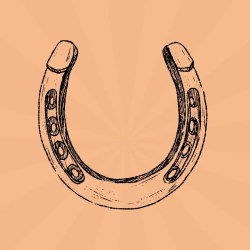What if the key to lasting creative success isn’t in how fast you go, but how well you rest?
This week on the Daily Creative podcast, I discussed with Chris Ducker what it really means to be a “Long Haul Leader.”
Here are a few key learnings:
1. “Hustle can be a season, but it shouldn’t be a lifestyle.”
There’s a dangerous myth that relentless hustle is the only route to accomplishment. Periods of intense effort are necessary, but living life in sprint mode is unsustainable. Burnout, lost passion, and diminished creativity follow when adrenaline becomes your default setting. Instead, leaders should embrace the ebb and flow—diving into sprints when needed, but then intentionally recovering, recalibrating, and building habits that allow stamina for the long game.
Where are you letting perpetual hustle masquerade as progress, instead of carving out intentional rest?
2. “Burnout is not a badge of honor.”
Chris’s personal account of pandemic-era burnout dismantles the narrative that being perpetually drained is just “what work feels like.” Napping through daylight, feeling perpetually foggy, and an unshakeable emptiness aren’t signs of commitment—they’re alarm bells. Admitting vulnerability isn’t weakness—it’s wisdom. Leaders owe it to themselves and those they serve to identify early warning signs and take real action, before crisis forces change.
When was the last time you honestly assessed your own warning signals—before waiting for a breaking point?
3. “Build your own Life Operating System (Life OS).”
Operating systems aren’t just for computers. Chris introduces the idea of a personal “Life OS” made up of micro-habits—health routines, real relationships, meaningful learning, and space for hobbies—that build resilience over time. Small shifts in each area compound, sustaining creativity and leadership far beyond quick fixes. The magic lies not in grand life overhauls, but in tiny, consistent moves that keep you working and living at your best.
What’s one micro-move you could make this week to strengthen your Life OS?
4. “Know your who, not just your what.”
Sustainable work isn’t about churning out more output; it’s about knowing who you’re serving. For Chris, focusing on the people he impacts—clients, mentees, and his inner circle—provides meaning and direction that refuels his leadership. Rather than getting lost in endless tasks, leaders benefit from regularly re-centering on the “who”—the actual humans whose lives are changed by their work.
Who are the people you’re uniquely positioned to serve, and how are you intentionally investing in them?
5. “Small signals matter more than big crises.”
Breakdowns—medical scares, emotional collapse—are clarifying, but waiting for a crisis is optional. Todd emphasizes that it’s often the quiet cues—fatigue, disengagement, or subtle discontent—that should prompt us to adjust. Catching these early means the difference between a manageable reset and a forced overhaul. Pay attention to what your body, mind, and work are telling you—don’t wait for everything to fall apart to make a change.
What subtle sign have you been ignoring, and what’s one action you could take in response this week?
Take this to heart: “You are not a machine.”
This week, look for ways to intentionally restore rather than just endure, remembering that long-haul leaders aren’t those who burn the brightest for a moment, but those who keep showing up—wise, resilient, and ready to do work that truly matters.












